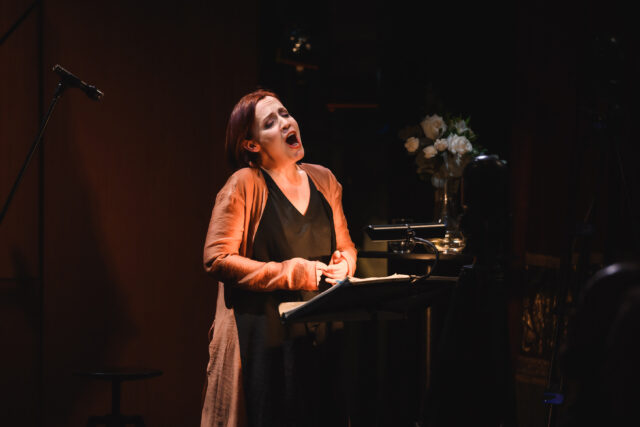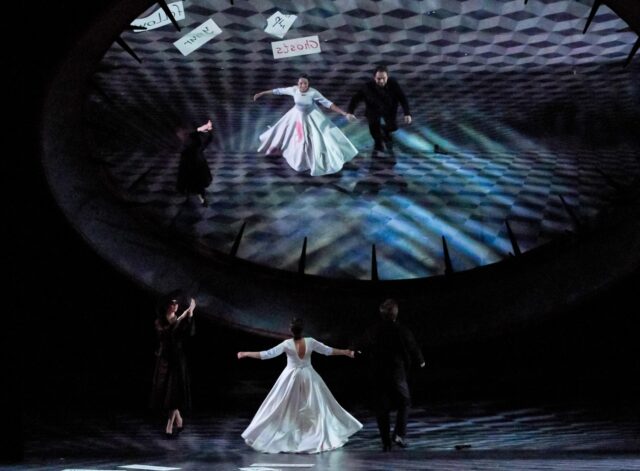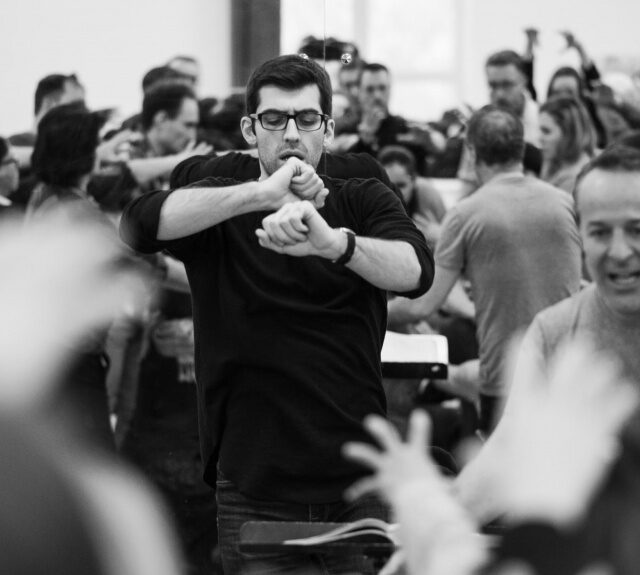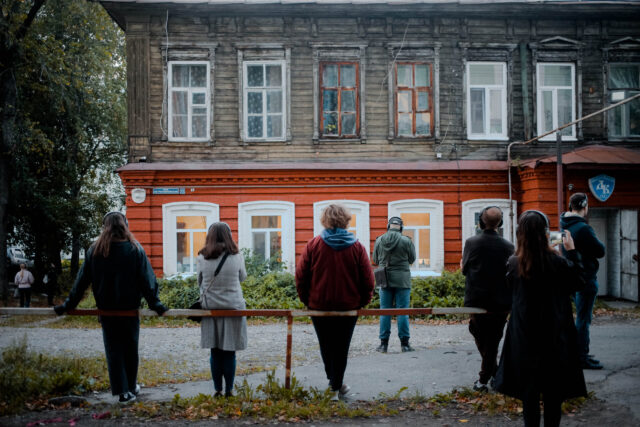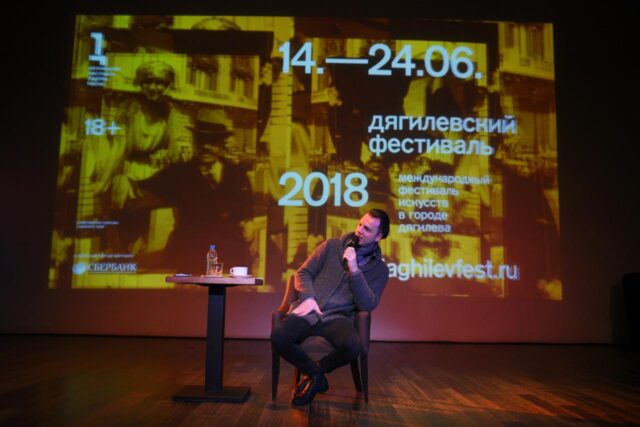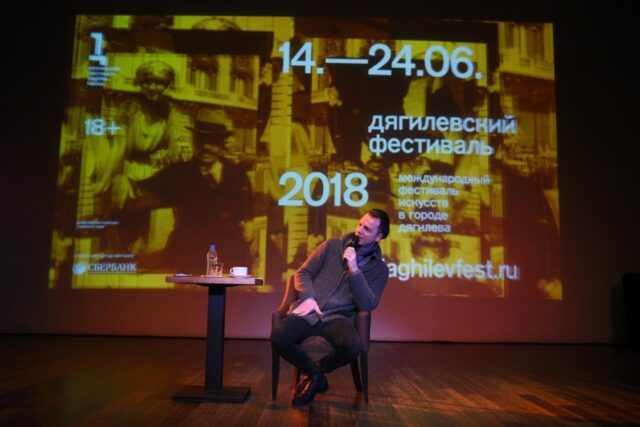Now into its 12th year, this year’s annual Diaghilev Festival will showcase various directions, genres, styles and formats. Early music will be played and research into current musical trends will continue. Unexpected interpretations by various authors will be presented alongside academic performances, while evening events will be followed by morning concerts. The festival will be held over 11 days in the middle of June in around ten venues across the city.
MUST-SEES OF THE DIAGHILEV FESTIVAL
The centrepiece of the Diaghilev festival will be the premiere of the dramatic oratorio by Arthur Honegger — Jeanne d’Arc au bûcher — staged by Romeo Castellucci, one of the most sought-after and debated directors in the world. Jeanne d’Arc au bûcher is a co-production of the Perm Opera and Ballet Theatre and several major European stages: Opéra National de Lyon (France), Théâtre Royal de la Monnaie/De Munt (Belgium) and Theatre Basel (Switzerland). The premiere of the opera took place early last year in Lyon and, as usually happens with projects by the innovative director, it sparked a lot of controversy, leaving no one untouched by it. A new production by Castellucci will open the Diaghilev Festival. The main parts in it are assigned to drama artists — the French theatre and cinema stars Audrey Bonnet and Denis Lavant. The musical part of the Perm version of the opera will be performed by the musicAeterna orchestra and chorus. The performance will take to the stage of the Perm Opera and Ballet Theatre during the first three days of the festival. Brandishing the conductor’s baton will of course be Teodor Currentzis (June 14 and 16) as well as Pyotr Belyakin (June 15).
The choreographic project which will be unveiled at the height of the festival on June 19 and 20, and one which is by no means inferior to the opera performance in terms of its significance and ground-breaking nature, is the avant-garde ballet Nicht Sсhlafen (Don’t Sleep) by the famous Belgian choreographer Alain Platel. Due to be performed by the artists of his dance company ‘les ballets C de la B’, the ballet features bold and harsh choreography by Alain Platel set to the music of Gustav Mahler. This in turn is contrasted with African polyphonic singing and radical, disturbing set design by the Dutch artist Berlinde de Bruyckere. It was first presented to the public on RUHRtriennale in 2016.
The ballet toured several major European festival venues and now is going to be performed in Russia for the first time. Platel’s creativity, however, is already known to the festival audience: in 2014, he and his artists performed at the Diaghilev Festival vocal and choreographic composition C (h)oeurs to music by Verdi and Wagner.
The research of various forms of creative pursuit will continue with the production of Needles and Opium by the founder of the Ex Machina theatre company, theatre and film director Robert Lepage, a stage composition performed by the Austrian actress Isabel Karajan — Miss Death meets Mr. Shostakovich — and a new project by Meredith Monk — a major representative of the New York avant-garde movement, working at the crossroads of various artistic practices in Cellular Songs.
One of the most anticipated events of the festival is the performance of Gustav Mahler’s symphony by the Festival Orchestra conducted by Teodor Currentzis which traditionally closes the festival programme. This time Symphony No. 4 and related compositions from the vocal cycle Des Knaben Wunderhorn will be performed.
TO SLEEP OR NOT TO SLEEP — NEW FESTIVAL FORMATS
The concert programme of the festival is calmer stylistically, but no less bright and rich in terms of content, and marked by chamber concerts, solo performances, and a gala featuring outstanding contemporary musicians.
For the first time in recent years jazz music will be performed at the Diaghilev Festival by the acknowledged master of improvisation — London musician of Russian origin Zhenya Strigalev. And, as usual, there will be early music in the programme. The Belgian graindelavoix ensemble, boasting the ideal authentic playing technique and which already performed at the festival in 2016, returns with polyphonic Byzantine and Greek music. The festival audience will have the opportunity to hear the complete Bukovina Songs piano cycle by Leonid Desyatnikov performed by the Perm Opera prima Nadezhda Pavlova and pianist Alexei Goribol. The cycle will be performed in full in Russia for the first time.
Another regular participant at the festival — the Moscow Contemporary Music Ensemble (MCME) — will continue to explore contemporary music through the works of Georg Friedrich Haas, Arvo Pärt and Enno Poppe. The musicAeterna chorus will perform fragments of the cycle of Marian antiphons by the young composer Alexey Retinsky, whose piece Teodor Currentzis first premiered to the Russian public in Moscow this February.
The Diaghilev Festival continues to experiment with formats. Those who are fond of darkness and mystery are expected at another piano-gala. This time, four famous pianists will take part in the night concert: Alexei Lyubimov, Alexander Melnikov, Alexei Zuev and Vyacheslav Poprugin. Once again, the festival affords people the chance to welcome the start of dawn on the Kama River bank after a series of exquisite and refined morning concerts at the Perm Art Gallery.
Those who are looking to get a bit of shut-eye will perhaps be especially interested in the new format — the sleep concert. First tested in the 1980s, it is still perceived as something strange and rather obtuse, but it is very popular amongst those who wish to experience something different. In line with its concept, each spectator is given a bed, pillow and a blanket and after the third bell they are submerged into total darkness, sleep and music in order to explore the boundaries of their imagination and the subconscious. The eight-hour lullaby for project participants will be performed by the Festival Orchestra musicians Nikolai Skachkov and Sergei Poltavsky. The concerts will be held in the foyet of the Ural Hotel.
— The power and the magnetism of the Diaghilev Festival is that not only can everybody choose the event, which best appeals to their interests and tastes, they can also discover something new. It’s a meeting point of different epochs, various aesthetics, genres and directions. At the same time, there is nothing fundamentally normal in the programme, everything that is a part of it — be it a recognized masterpiece or an avant-garde, experimental composition — is timeless; it’s all pure art. The festival is very large scale, it has achieved international renown — up there with the major international festivals — and this was achieved mostly thanks to the partnership with Sberbank, which this year acts as the general sponsor of the festival. It’s set to be a fantastic 11 days.
FESTIVAL CLUB AND EDUCATIONAL PROGRAMME
During the festival city life adjusts to fit in with the demands of its up-in-the-air schedule and needs. This year the festival is exploring new venues. In addition to the already familiar ones — the Triumph Private Philharmonic auditorium, the Diaghilev House, the Organ Concert Hall and the Art Gallery, festival events will be also held at the Soldatov Community Centre, the Young Spectator’s Theatre and the Ural Hotel.
The public garden by the theatre will play host to the Festival Club. This is a space which functions as a meeting place, somewhere to discuss the events, where new ideas are born. More than 80 events will take place over the course of the 154 hours during which time the cosy pavilion, with its veranda and coffee shop, will be open. Within these comfortable surrounds, spectators will be able to enjoy video screenings of the Festival d’Aix-en-Provence performances staged by Dmitri Chernyakov, Cathy Mitchell, Richard Jones and Peter Sellars, as part of the ‘Opera on screen’ project. The theatre garden will also host a series of dance lessons and public readings during the festival.
Contemporary theatre methods and new techniques, language and interpretation capabilities will be discussed at lectures and master classes under the umbrella of the Educational programme, in which Russian and European experts in the field of contemporary music and theatre will take part. Students participating in the Educational programme will present their own project to the audience in the form of a mini-opera they will create. Meanwhile, for the first time this year, as part of the Educational programme, a separate feature entitled ‘Women in Art’, will be held, dedicated (as the name would suggest) to women in art. Students studying musical specialties in areas underrepresented by women such as conducting, and playing the clarinet and drums, will be given an extra opportunity to expand their musical experience. This part of the Diaghilev Festival Educational program is supported by the beneficiary owner of «Metafrax» PJSC Seyfeddin Roustamov, who has been supporting the international ‘Women in the Arts’ museum project for many years.
Tickets for the Diaghilev Festival 2018 will go on sale in two weeks. This year, a new way of selling single tickets to all the events of the main festival programme will be in place. The 12th Diaghilev festival is being held with the support of the Perm Territory Ministry of Culture. The general sponsor of the festival is «Sberbank» PJSC, while its official festival partner is «LUKOIL» PJSC.
